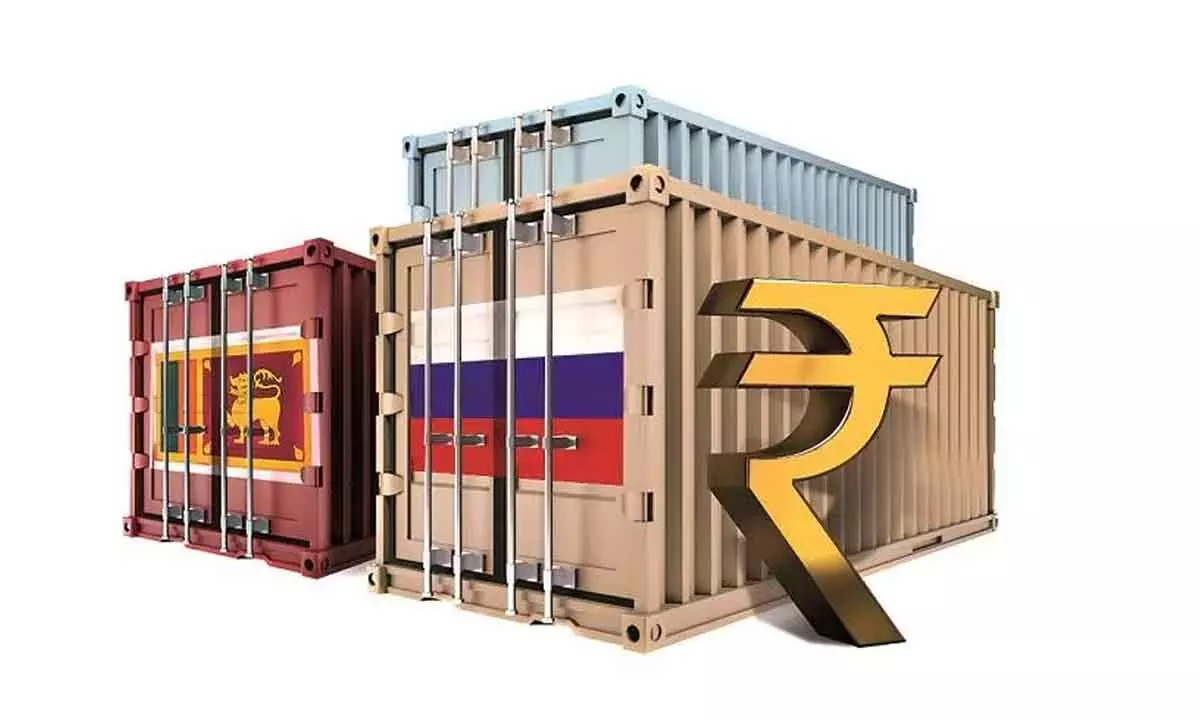RBI opens door for rupee trade settlement with 22 countries
Gives nod to banks from 22 countries to open Special Vostro Rupee Accounts (SVRA) and use Indian rupees for settling payments
image for illustrative purpose

The Reserve Bank of India (RBI) has granted permission to banks from 22 countries to open Special Vostro Rupee Accounts (SVRA) and use Indian rupees for settling payments. Vostro accounts are accounts that a domestic bank typically holds on behalf of a foreign bank, denominated in the currency of the former.
They include Bangladesh, Belarus, Botswana, Fiji, Germany, Guyana, Israel, Kazakhstan, Kenya, Malaysia, Maldives, Mauritius, Myanmar, New Zealand, Oman, Russia, Seychelles, Singapore, Sri Lanka, Tanzania, Uganda, and United Kingdom.
Currently, Russia, Sri Lanka, and Mauritius have opened Vostro accounts. Nearly 12 more countries are currently under the process of opening the Vostro accounts, two sources familiar with the development, said.
20 banks operating in India are supposed to open 92 SRVAs of partner banks from 22 countries as part of efforts to promote bilateral trade in local currencies. Rupee for international trade transactions will help check the flow of dollars out of India and slow the depreciation of the currency albeit to a very limited extent.
Talking to Bizz Buzz, Anil Kumar Bhansali, Head of Treasury and Executive Director, Finrex Treasury Advisors, said, “This would enable exporters and importers to invoice in their respective domestic currencies, enabling the development of a bilateral foreign exchange market.”
India has been facing the issue of dollar outflow every year thus making its currency vulnerable to vagaries of any risk off sentiments, which brings about pressure on its current account and thus rupee. India also has a trade deficit mainly due to oil, of which 88 per cent it has to buy from OPEC+ and other countries. Also, at times when certain countries are on Western sanctions, it becomes difficult for India to make payments in dollars due to these sanctions like we experienced in case of Venezuela and Iran and recently Russia.
To avoid such situations as also to encourage internationalization of Indian currency, it has been decided by RBI has taken a pivotal step to open Vostro accounts with various countries to encourage settlement in Indian Rupee and reduce transaction costs associated with currency conversions. This move encourages global trade growth, with a specific emphasis on boosting Indian exports and catering to the growing interest in Rupee as a currency for international transactions. The Director General of Foreign Trade incorporated provisions in the Foreign Trade policy to facilitate trade settlements in domestic currency covering invoicing, payment and export/import settlements. Export benefits and fulfilment of export obligations are also now granted for export realizations in Rupee, in accordance with RBI guidelines.
Requesting anonymity, an industry expert said, “This is a good step in the right direction.” The objective of the Vostro Rupee accounts is to encourage use of the Rupee as a currency of invoicing and a currency of settlement. This is a good step in the right direction.
However he feels that replacement of Dollar by Rupee in international trade may not be possible now. India's share in global trade is a miniscule percentage and as such the Rupee cannot appreciate.
Dollar has a predominant position which cannot be challenged now.
While 48 per cent of global trade is invoiced in dollars, 90 per cent of the forex transactions around the world is in dollars.
Moreover, 90 per cent of the forex transactions around the world is in dollars
Approximately 60 per cent of the forex reserves of all major central banks are in US Dollars Therefore, replacing US Dollar as a currency of trade does not arise at this juncture.

